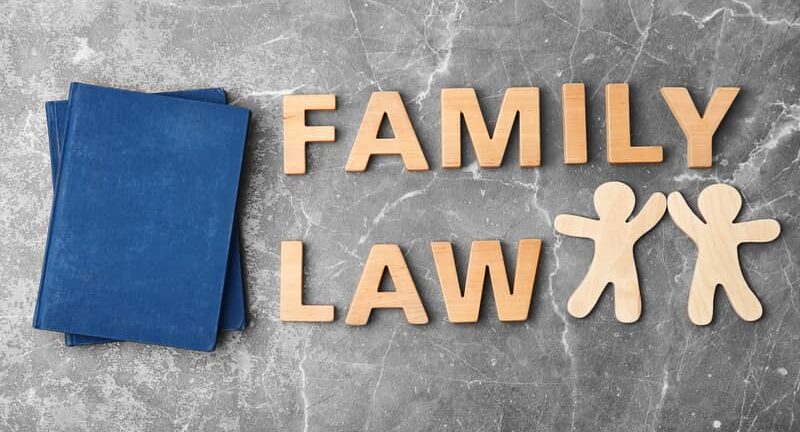
 Researching divorce and divorce lawyers is often an emotional but important first step. Considering your legal options is a good idea, especially if you’re not entirely certain you even if want to try separation or possibly end the marriage.
Researching divorce and divorce lawyers is often an emotional but important first step. Considering your legal options is a good idea, especially if you’re not entirely certain you even if want to try separation or possibly end the marriage.
There are a lot of things to consider in addition to the relationship itself. Distribution of your marital estate can be extraordinarily complicated.
You might not realize the entire value of individual and marital assets until looking at things holistically, considering the totality of circumstances.
If you add children and the potential for protracted litigation or a custody dispute, there is a lot to absorb.
It’s OK to be a bit unsure and unsettled. This is a big step. It’s also OK to sit down with us, ask questions, and decide to do nothing at all – Bill Powers, Divorce Attorney Charlotte NC
What’s the first step in separation and divorce?
That’s a great question and a potential source for problems. Under the NC divorce laws, except for very narrow, limited exceptions, you must be legally separated for no less than 1 year before filing for divorce in North Carolina.
As such, legal separation comes first. Indeed, that’s what attorneys refer to as a term of art. The rules for legal separation are specific and not subject to negotiation.
One of the more common errors and misunderstandings people have is failing to fully comprehend what it means to be legally separated. It most certainly is not living in separate rooms, under the same roof, or simply proceeding as if you are no longer married.
That may be the law in other states. It is not the law in North Carolina. In fact, the one-year clock can be reset by renewed cohabitation, even if that turns out to be only for a short period of time.
What is a Legal Separation in NC?
Legal separation begins the day spouses maintain two separate residences, with the intent to continue living separate and apart from each other on a permanent basis. It must be an actual, physical separation with two separate, distinct residences. See N.C.G.S. § 50-6.
Article One of Chapter 50 (the NC Divorce and Alimony statute) mentions “husband” and “wife” when referring to legal separation. Given the adoption and recognition of same-sex marriages in North Carolina, the parties to a divorce, whatever form that may take, must intend to permanently live apart.
Thereafter, either the plaintiff or the defendant in an action for divorce in NC must have resided in North Carolina for no less than 6 months. There are also other legal requirements regarding jurisdiction and proper venue that must be fulfilled prior to filing a lawsuit.
Both parties do not have to consent to the divorce. That only takes one spouse in North Carolina. The law demands proof of legal separation for no less than one year and cannot be waived by mutual consent of the respective parties.
What is Reconciliation?
Resumption of marital relations after separation may later be determined to be a formal reconciliation. Under the law, that legal issue must be resolved pursuant to N.C.G.S. 52-10.2. Resumption of the marital relationship requires a voluntary renewal of a “husband and wife relationship.”
Occasional or “isolated” incidents of sexual intercourse may not constitute a legal reconciliation or otherwise cause problems with the mandatory 1 year separation period. In reviewing whether the parties intend to reconcile, the family court Judge considers the totality of the circumstances, making appropriate Findings of Fact and Conclusions of Law.
Obviously, the General Assembly will need to update the law, recognizing the legal rights (and responsibilities) afforded to same sex marriages in North Carolina.
Bill Powers – Divorce Attorney Charlotte NC
There is a fair amount of discretion and subjective interpretation given to Judges under the divorce laws. While that may lead to some level of confusion at times, it also recognizes the many different types of relationships in North Carolina.
Clearly, the Pine State has room to improve, especially as it pertains to updating and recognizing same sex marital relationships in the various and sundry laws and martial statutes.
Fortunately, the substantial discretion that is given to Judges in settling legal issues also provides the opportunity for compassion and empathy in resolving your legal dispute, recognizing individual circumstances and societal changes.
Our family court judges in Mecklenburg County are some of the best in the state. They are dedicated, hard-working, and committed to resolving marital disputes in a fair and equitable manner – Bill Powers, Divorce Attorney
And with that said, it’s important you take the time to carefully consider your legal options. The “first step,” as we’ve called it, may involve sitting down with an attorney, asking questions, and providing information about your unique circumstances.
No two marriages are exactly alike. What’s important to you and your family, especially concerning life-altering changes to the structure of your interpersonal relationships, deserves careful, measured consideration.
We’re here to help, call Bill Powers now at: 704-342-4357. You may also email Bill directly at: Bill@CarolinaAttorneys.com
Related Posts
Equitable Adoption in North Carolina
The doctrine of Equitable Adoption is a judicially created “equitable” remedy...
Charlotte Child Custody and Contempt of Court
The North Carolina Court of Appeals ruled this week on a longstanding Charlotte...

